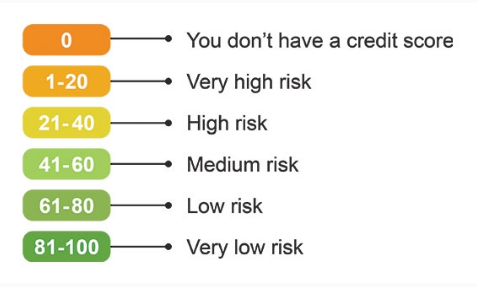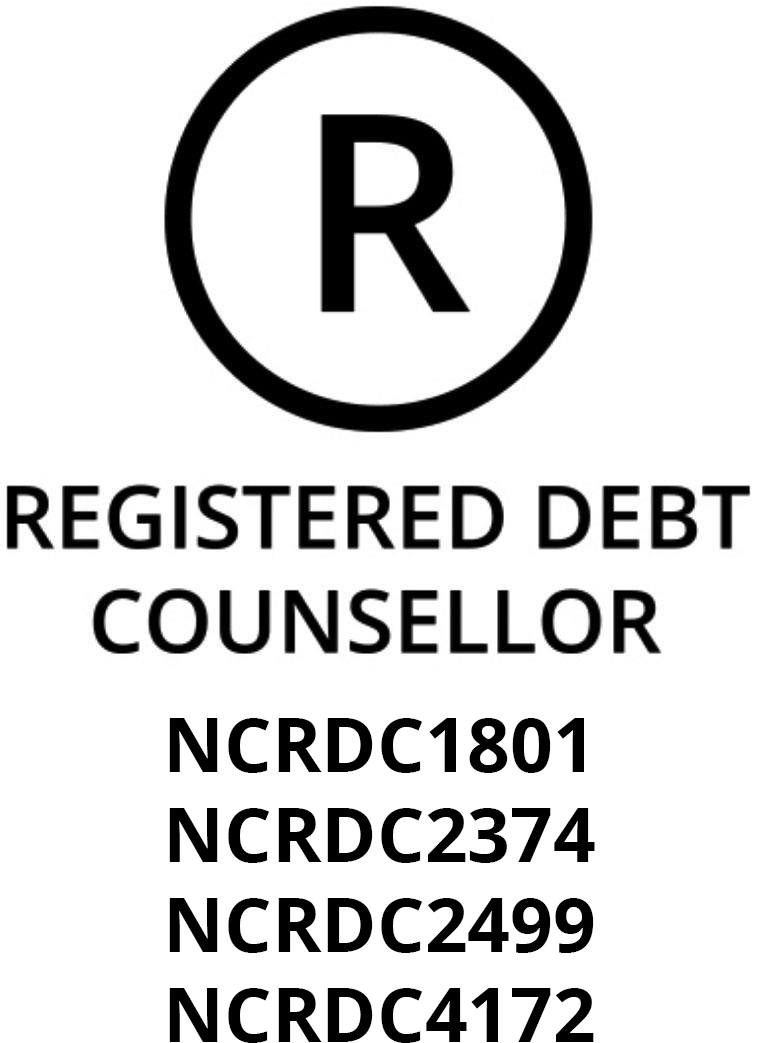Debt counselling will appear on your credit profile, which temporarily blocks new credit. This protective step helps you focus on repayment through a structured plan. Over time, this responsible approach can improve your credit score and set you up for a stronger financial future.
Are you overwhelmed with debt and unsure how it affects your credit score? You’re not alone.
In this article, we break down the essentials of credit scores, credit reports, and how debt counselling can affect your financial profile.
This guide is a good place to start if you’re looking to rebuild your credit or just want to make more informed financial decisions.
Begin by checking your credit report
Take advantage of the fact that you can get one free credit report from each credit bureau every year.
Obtaining your credit report will help you understand your overall financial position, and how banks and creditors view your creditworthiness.
It can also provide you with insights into how to improve your financial behaviour.
What is the difference between your credit score and credit report?
Your credit score is simply a number reflecting your credit risk as a consumer. In other words, it tells a lender how likely it is that you will pay back credit.
It is calculated using various algorithms and scoring models that consider multiple factors, including your payment history, outstanding debt, and length of credit usage.
Every credit score-checking tool uses a different scale. DebtBusters uses a scale of 0 to 100, while JustMoney uses only three-digit numbers.
Your credit report is more complex than your credit score. It’s essentially a full record of your credit history, including the following:
- A list of the types of credit accounts you’ve had
- Your payment history
- Current credit limits and account balances
- Whether you are (or have been) under debt counselling (sometimes referred to as debt review)
- Whether you’ve been declared bankrupt
You can check your credit score for free, and checking it won’t lower your score.
What is a good credit score?
When you check your credit score on DebtBusters, you’ll be given a score of between 0 and 100. Below is a table showing what your score means. This will help you understand your financial position.

The higher your score, the better it is – indicating a lower risk to credit providers. If your score is low, you may be considered high risk, which can make it difficult to qualify for loans or credit.
What impact does your credit score really have?
Your credit score plays a significant role in your financial life.
It helps you understand your financial status and plan your next money moves.
A poor credit score means banks and other lenders may consider it risky to extend credit to you, so they may charge you a high interest rate or even decline your credit application.
Imagine saving diligently for a deposit on your dream home, only to have your bond application declined due to a poor credit score. Unfortunately, this is a common reality – and one of the consequences of having a low credit score.
Prospective employers may check your credit score before hiring you, so it might affect your ability to get a job. A poor score may also make it difficult to secure a rental lease.
Why should you check your credit report?
Your credit report records your financial history, providing insights into your borrowing, spending, and payment habits.
You’ll be able to see how much you owe your creditors, as well as every account you’ve ever opened, missed payments, and judgements against you.
Having access to this information allows you to plan your finances better. If you believe you’re not a risk to a lender, but your credit report shows otherwise, you must adapt your financial behaviour. This could include anything from changing your spending habits to budgeting more effectively.
Need debt counselling or consolidation?
Explore DebtBusters' solutions for reducing your interest rates and unlocking cash.
Find out moreChecking your credit report will also allow you to monitor your financial progress and detect instances of fraud on your accounts.
How often should you check your credit report?
It’s a good idea to review your credit report at least once a year.
This helps you see where you stand financially and shows where you can improve. It also lets you check that your personal details are correct and that you have not fallen victim to fraud or identity theft.
However, don’t access your full credit report too often. Credit bureaus track how often you do so, and multiple checks could hurt your credit score.
You get only one free credit report from each credit bureau a year – after that, you must pay.
On the other hand, you should check your credit score every month. It’s updated monthly and always free to check, so there’s no reason not to.
How do I get my credit report?
You can obtain a free credit report from each credit bureau once a year.
You can easily access your report by visiting the website of any South African credit bureau, including the four biggest: Experian, TransUnion, VeriCred Credit Bureau (VCCB), and Xpert Decision Systems (XDS).
Other good credit monitoring services you can use
If you’d prefer not to get your report through a credit bureau, you can use a different credit monitoring service.
Here are some options:
- DebtBusters
- Kudough
- ClearScore
- JustMoney
Each of these services will provide you with slightly different information.
On the DebtBusters platform, you can view your credit score, open accounts and balances, compare your score to that of other people in your age range, and view the percentage of your income going to credit accounts. You can pull a free credit report on the platform, too.
Your bank will also enable you to check your credit score via various platforms.
Debt counselling and credit scores
What happens if your credit report indicates financial problems, or your credit score is low because you’ve defaulted on your debt?
One option to help you take back control of your finances and improve your credit score if you’re overindebted is to enter debt counselling.
Will debt counselling negatively affect your credit score?
Yes, debt counselling may impact your credit score if you have missed payments. However, debt counselling can help you pay off your debt and improve your score over time.
While you’re under debt counselling, you’re protected by the National Credit Act.
This means:
- Credit bureaus can’t add any more negative information to your credit profile.
- Your debt counsellor will notify the credit bureaus that you’re under debt counselling.
- Credit providers can’t take legal action against you.
Will my credit score change when debt counselling ends?
It’s likely that your credit score was already damaged before you started debt counselling. The good news is that if you honour your debt counselling agreement and pay your instalments diligently, your credit score will improve over time.
Once you’ve completed the debt counselling process, your score will still be low – but you’ll be in a better place to start improving it.
Once you’re debt-free, focus on good financial habits to help you build and maintain a good score.
This is important because a good credit score can open financial doors – for example, helping you to qualify for a car or home loan.
Start your journey to financial health
Stay on top of your finances by checking your credit score regularly and ensuring all your personal and account details are correct.
Work on building a good credit history to achieve your long-term financial goals.
If you’re struggling with debt, contact DebtBusters or request a call-back.
Let us call you back
Fill out our form below to get a free call-back from one of our consultants to discuss your debt situation.
Jump to form




